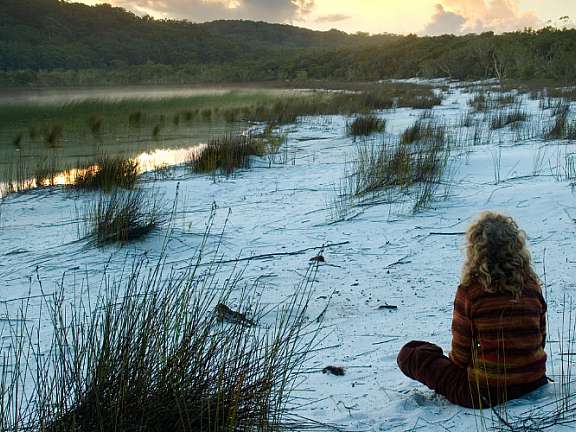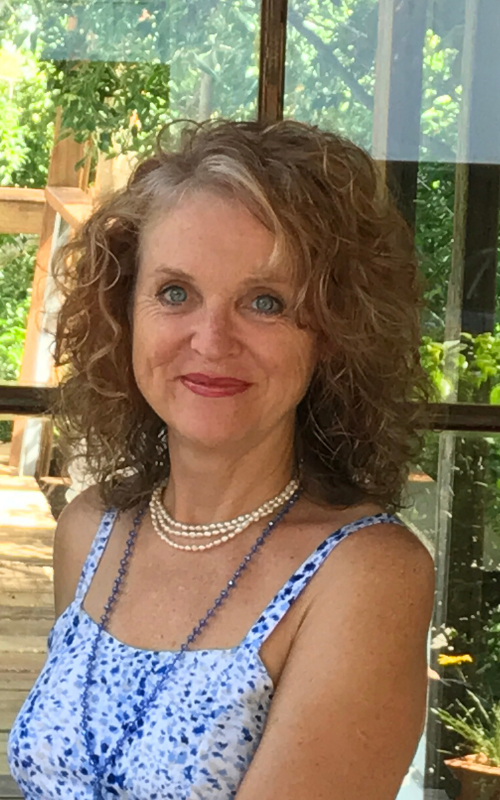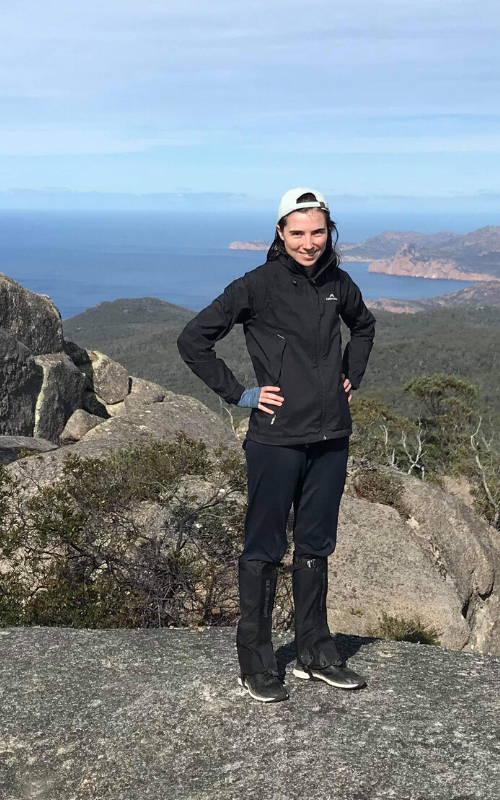
The power of personal story
Get your EPBC submission in
With the deadline fast approaching to let the government know why you feel our national nature laws are a failure and how they need to change, we're set to give a live Facebook workshop on how to write a submission. Here we speak to two people who have made submissions. They tell us why it's so important, how best to go about it and how it can even be a little fun.
The time is nearly up. 17 April is the deadline to let the government know why you think our failed nature laws need to change. A review of the EPBC Act happens once every 10 years making this a once-in-a-decade opportunity to demand that the Government puts in place protections for nature that actually work.
As part of your submission, your personal story about why the natural world is so important to you will help the Government shape the legislation necessary to care for nature in the coming decade.
So make sure you tune into our live submission writing workshop on Facebook on Wednesday 8 April at 12:30, where we will write submissions together. Our New Nature Laws campaign manager Suzanne Milthorpe will guide you through the entire process and dare we say it, make it just a little bit fun too.
Here, we speak to Annie and Lizzie, who have written their submissions, ask how best to go about it and why it's so important.
Meet Annie from Brisbane:

"I've been involved with the Wilderness Society since the 1970s. I am now a part of Brisbane Metro-North group and have completed Wilderness Society training. My father was an ardent environmentalist and my mother, the daughter of Lewis Reginald Benjamin.
"Grandpa loved wild places but was the first person in Australia to make Australian news print out of Australian hardwood. In the 1920s, he sourced the hardwood from the old growth forests of Tasmania. Today he could be seen as an environmental vandal. But, in that era, primary industry was essential to steer Australia out of the Great Depression. If he was alive today, he would be horrified at global forest destruction. He left behind two families of ardent environmentalists.
"The love of nature is part of my heritage, despite or inspired by Grandpa’s legacy."
Meet Lizzie from Sydney:

"I'm part of the Eastern Suburbs Movement For Life community group. I got involved with the Wilderness Society when one of my flatmates told me about a Captain Planet screening; I remember the cartoon growing up.
"At the time I was interested in getting involved with an environmental group and to be a part of something bigger than myself. I went along to the screening and ended up going to the community organising workshop, which was really good and I have been part of the group for about six months.
"It's been nice to connect with like-minded people and to realise that there are others out there who have the same concerns as you. The drive for new nature laws has been a good focus because it feels like you can actually achieve something bigger than yourself and you've got this good opportunity to let the government know what we want out of the environmental laws."
What tips do you have for writing your own EPBC submission?
Annie: "I really enjoyed doing my submission. I was very intimidated by the government website, but once I'd stepped away from that and gone through the guidelines that the Wilderness Society set up, it was really enjoyable and it didn't take a lot of time.
"I probably put aside a couple of hours so I could understand everything. And then the actual writing didn't take very long. So from the point of view of following the Wilderness Society's guide: no problems."
Lizzie: "I did it in little chunks because I guess it's a lot to do in one go. I started off reading through bits and pieces in [my group's] discussion paper just to make sure I had the right context. But for people who are time poor that isn't absolutely necessary.
"The next thing I did was Google articles about the EPBC. For instance, I Googled 'EPBC, climate change and carbon emissions', and read some articles on that and even people's submissions from the last round of submissions a decade ago.
"I figured out the recommendations that I wanted to call out in my submission and got inspiration from some of those articles and those previous submissions.
"Then I leaned quite heavily on the Wilderness Society's submission writing guide. It was very useful, especially just looking at the example provided there. It took me a bit longer than expected, so don't be too hard on yourself and don't rush. It will take a couple of hours, but it's a short process and feels worth it."
Why is making an EPBC submission so important?
Annie: "We need to address the nature laws because they underpin the dysfunction of the Government in being able to protect effortlessly and seamlessly the forests, the fauna and flora, the watercourses, oceans and reefs. The nature laws are just simply not doing the job that they're supposed to do."
"If enough Australians put in a submission before the deadline then I believe that we have a real chance to change the laws."
Lizzie: "I love walking and running through the Royal National Park and the Blue Mountains; being in wilderness is something that has always been important to me. I realised that if I want to make a difference to how the environment is tracking, I'm going to have to get involved in something bigger than myself. You can make your own personal contributions, but if we're actually going to achieve anything then we need to band together.
"The one thing that I find myself always stressing to people about this EPBC submission process is that it's a once-in-a-decade opportunity to have your say. So just get stuck in; it's a real opportunity."
Tell us about your own submission?
Annie: "I wrote my own story and I really wanted to make it local because I've lived in the same place for over 30 years. Due to climate change I've seen dramatic changes to the watercourses close to Mount Coot-Tha; I live at the base of the mountain.
"So I made it local, but I also made reference to the species extinctions that could happen due to the summer bushfires. So I addressed the things that I was concerned about locally and nationally."
Lizzie: "In January, my group ran a workshop so we could learn how to write an effective submission together. I did mine off the back of that.
"The main reason why I joined the Wilderness Society is because I'm very concerned about climate change. And that's tied up to other issues, like deforestation, for instance, which drives climate change. So in my submission I covered the fact that there's no trigger in the legislation for carbon emissions of particular developments."
We're here to help!
Take part in our submission writing workshop hosted by the Wilderness Society's nature laws campaign manager, Suzanne Milthorpe, on Wednesday 8 April at 12:30.